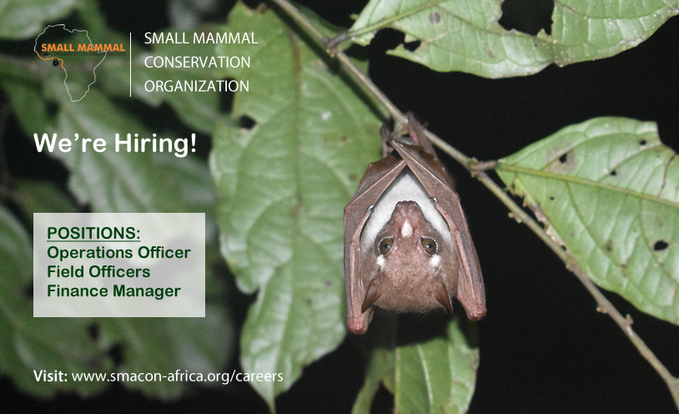Author: Ebere Idiaye
-
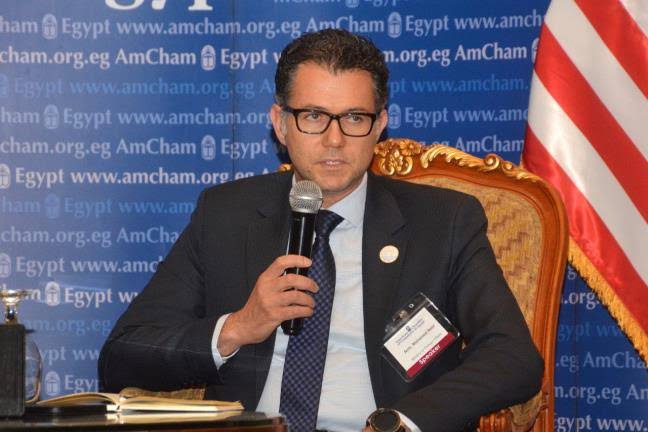
Egypt’s chief climate negotiator says developed countries are backsliding from climate change finance promises
Egypt’s chief climate negotiator, Amb. Mohamed Nasr, said that there is a failure to deliver and a a probable backsliding from finance pledges made for climate change by developed countries.
This statement was made by Amb. Mohamed during a virtual press conference on the preparations of the 27th Conference of the Parties of the United Nations Framework Convention on Climate Change (COP27) to be hosted by Egypt in November 2022.
He asserted that the developed countries have regularly failed to meet their promise to provide $100 billion a year in climate finance to developing countries since the Copenhagen Climate Change Conference in 2009.
“There is backsliding and non-delivery of pledges” Mohamed said. He is also director of the Environment, Climate and Sustainable Development Department at the Egyptian Ministry of Foreign Affairs.
He asserted that the parties “enjoy” moving into a process of strategizing, however nothing is taking place on the ground, he added.
He pointed out that future generations will most likely pay the price for the current non-delivery of pledges.
“If you look at the climate finance pledges, they are minimal compared to what is being mobilised for other causes.” he asserted
Egypt which is the host country is hopeful that the present worldwide geopolitical scene will not find its way into the COP27 negotiations.
The 2009 commitment by the developed countries to “jointly mobilise $100 billion annually in climate finance” in support of developing countries by the year 2023 came three years later than was initially planned, the Egyptian official affirmed
-

ANI Foundation Signs 30-year Agreement with Edo State Government
Africa Nature Investors (ANI) Foundation has announced the signing of a 30-year long agreement with the Edo state government for conservation/eco-tourism concession in Okomu South and Gele-Gele Forest reserves.
ANI Foundation announced the move on Wednesday via its Twitter handle.
The foundation highlighted the benefit of the agreement for not only the indigenes but also some endangered species.
“These two areas are contiguous with Okomu National Park. We hope to create a larger conservation landscape that will benefit both the local people and endangered forest elephants,” ANI Foundation tweeted.
“The larger conservation landscape in Edo State will benefit wildlife and improve the livelihoods of the local communities and farmers.”
Kada Ngbale a governance, policy and culture enthusiast congratulated and commended both parties referring to the pact as historic and as a pace setter. He expressed hope that other states will follow Edo’s example.
“I look forward to seeing Adamawa and Taraba States where bestride the Gashaka Gumpti National Park sign a deal as important as this in the near future,” Ngbale said.
However, in an exchange of tweets with the culture enthusiast, ANI Foundation revealed that in collaboration with the Federal Government in 2017, it had signed a similar 30-year agreement with the National Park Service regarding Gashaka Gumti National Park.
ANI also stated that there is a similar agreement between it and the Nigeria Parks for Okomu National Park also in Edo State which was signed in May 2022.
-
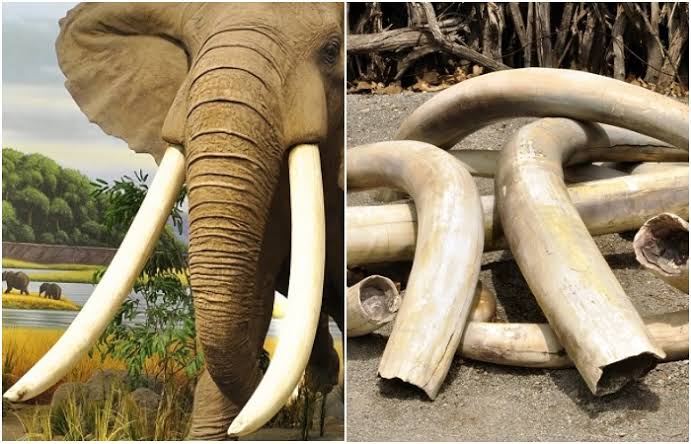
Ugandan man nabbed with elephant ivory gets life sentence
Pascal Achiba was on Thursday, October 20, 2022 sentenced to life imprisonment by the country’s Standards, Utilities and Wildlife Court after he was convicted for the unlawful possession of protected species the state operated Uganda Wildlife Authority (UWA) reported in a statement.
Mr Pascal was caught with nearly 10kg of elephant ivory and therefore, was handed the country’s highest penalty ever for wildlife violations.
Achiba had earlier been arrested in January in a suburb of the capital Kampala alongside two pieces of ivory weighing 9.55kg.
The head of UWA, Sam Mwandha referred to the sentence as “a landmark achievement in the fight against illegal wildlife trade.”
The business of poaching and illicit wildlife trade is rife in Uganda where the police seize hauls of ivory, rhino horns, pangolin scales and other wildlife products.
Being a previous offender, Achiba had earlier served an 18month jail term for having four pieces of ivory, so for the above reason he bagged a life sentence for being a “habitual offender” quoting the court’s chief magistrate.
Justice was also served a man who pleaded guilty in July 2020 for killing Rafiki, a dearly loved gorilla in Uganda as he gained an 11year long jail sentence. .
-
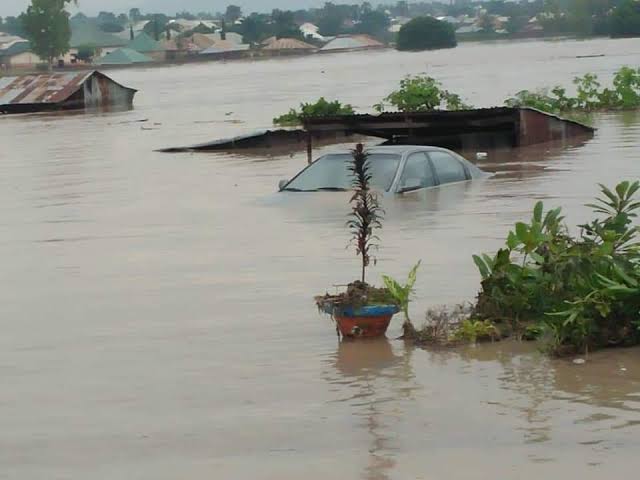
The worst floods over the past decade displaces more than a million in Nigeria.
The severe floods which began in Nigeria in September has brought about the displacement of about 1.5million inhabitants of those affected areas and has also unfortunately led to the demise of more than 600 people. One government minister has described it as the most devastating episode of seasonal floods Nigeria has seen in a decade.
The many heavy rains and poor urban planning has made parts of he country flood prone
Many communities around the Niger bridge have been submerged in water thereby halting economic activities for many small scale traders and farmers. As a result of the bleak situation, Nigeria’s minister of humanitarian affairs, Sadiya Umar Farouq, has asked five state governments to get ready to evacuate the residents living along flood plains. In Anambra which is one of those state, 76 people died while trying to escape the flood as their boat capsised.
According to the minister, more than 200,000 houses and 266,000 acres of farmland have been completely or partially damaged. She further warned states to “prepare for more flooding and to provide medical supplies for a likely outbreak of water borne diseases.”
The last experience of major floods in Nigeria was between July and October 2012 when the Niger and Benue rivers overflowed their banks. The death toll reported was under 500 however, a similar number of people were displaced.
The release of the surplus water in the Lagdo dam in Cameron alongside the negligence of the government in preparing for the seasonal floods, have been speculated to be the root cause of this year’s flood occurrence. Despite the fact that a need for a buffer dam has been in existence since 1982 when the Lagdo dam was completed, Nigeria still does not have one.
Due to inadequate prevention efforts, the country has to make concerted efforts to provide relief supplies for the victims. Therefore, there is going to be a disbursement of about 12,000 metric tons of food from Nigeria’s reserves, which will be sent to he affected communities, following President Muhammadu Buhari’s approval.
Unfortunately, government efforts are barely enough to cater to the magnitude of damage experienced around the country. Therefore, individuals have begun online and offline fundraising campaigns to crowdsource relief.
Major agricultural business are feeling the impact of these tragic occurrences and this is presumed to have a negative effect on food prices in the coming months. Olam which produces a quarter of Nigeria’s rice declares 10,000 acres of it’s farmland submerged, leading to a shortfall that is likely to inflate prices.
The company’s vice president for corporate and government relations, Ade Adefeko said ” we should expect an increase in rice prices in December. Of course, that goes without saying, because the entire crop has been lost“
-
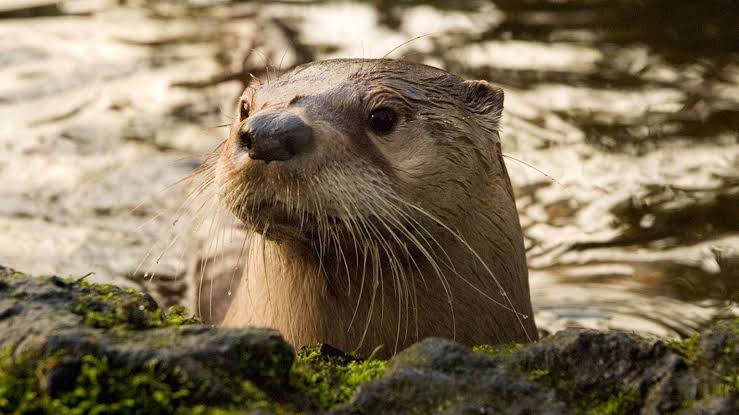
World’s wildlife depleted by 70 percent over the decades – report
The last 50 years have witnessed a great decrease in the population of the monitored animal species by 70% according to a landmark assessment sent out on Thursday which spotlights the devastating effect human activities is having on nature.
The data used was gathered from 32,000 populations of more than 5,000 species of mammals, birds, amphibians, reptiles and fish. The WWF Livjng Planet Index shows growing falls across the globe.
Territories rich in biodiversity have also been highly impacted by these losses, for instance, areas such as Latin American and the Carribeans the loss is as immense as 94 percent.
The Director General of WWF International Marco Lambertini, commented that his organisation was very worried by the recent data.
Quoting his directly, he said ” it shows a devastating fall in wildlife populations, in particular in tropical regions that are home to some of the most biodiverse landscapes in the world”
Mark Wright, the director of science at WWF, said the figures were “truly frightening” particularly for Latin America.
“Latin America is renowned for its biodiversity of course. It’s really important for lots of other things as well” he said
“It’s super important for regulating the climate. We estimate currently there’s something like 150 to 200 billion tons of carbon wrapped up in the forests of the Amazon.”
This surpasses by 10 to 15 times the current emission rates of green house gasses.
According to the research, freshwater species has dwindled more than those found in any other habitat, with an 83 percent fall since 1970.
Through the research, it has also discovered that development, farming, exploitation, the introduction of invasive species, pollution, climate change and diseases are the root causes of habitat degradation which results in wildlife loss.
Mr Lsmbertini observed that humans needed to reconsider their harmful and wasteful agricultural practices before the collapse of the global food chain occurs.
“Food systems today are responsible for over 80 percent of deforestation on land, and if you look at the ocean and freshwater they are also driving a collapse of fishery stocks and populations in those habitats. ” he enunciated
With world leaders due to convene in Montreal for the COP15 biodiversity summit in December, the report authors called for an international, binding commitment to protect nature, similar to the 2015 Paris Agreement on climate change.
The Living Planet Report argues that increasing conservation and restoration efforts, producing and consuming food more sustainably, and rapidly and deeply decarbonizing all sectors can alleviate the twin crises of climate change and biodiversity loss.
It behoves on he government not to neglect the usefulness of nature in providing food, medicine and water thereby including this in their policy making.
“We need to stress the fact that nature loss is not just a moral issue of our duty to protect the rest of the world. It is actually an issue of material value, an issue of security for humanity as well,” said Lambertini
The population loss hit harder in some regions than others, for example, Europe experienced a wildlife population decrease by 18 percent.
“But that also masks historic, very extreme losses of biodiversity,” said Andrew Terry, director of conservation at the Zoological Society of London, which helped compile the data.
“We know that we’re coming out of (a) low point in the state of biodiversity in the northern hemisphere.”
Africa as well reported a two-thirds drop in wildlife populations since 1970.
The Africa regional director at WWF Alice Ruhweza said that the assessment revealed how there was a “huge human cost” when nature is lost.
She said young people in particular were concerned about wildlife preservation, and would push governments to implement greater protective measures.
“We have a young, entrepreneurial and increasingly educated population that is showing more awareness around issues of nature,” said Ruhweza.
“So the potential for transformative change is really significant. But the time is running short, and we need to act now.” she concluded.
-
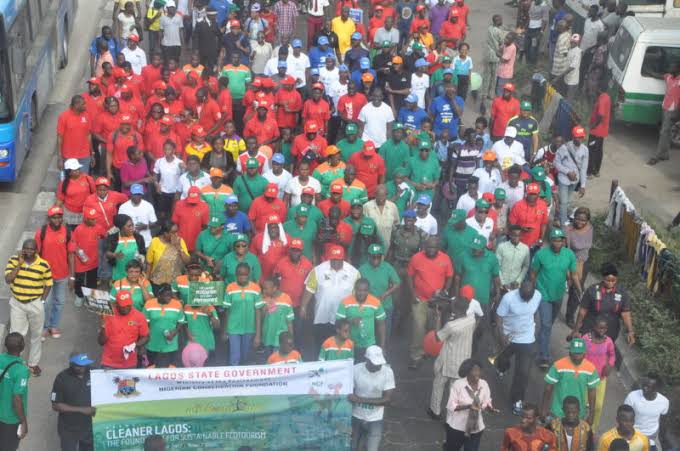
Walk for Nature 15th Edition: Lagos state collaborates with NCF.
The 15th edition of the yearly walk for nature is set to hold on the third Saturday of the month of October and this year the agenda is to to call attention to the importance of preserving nature and enhancing the quality of life across the state.
In his statement during a press conference that was targeted at sensitizing the public on the significance of this year’s Walk for Nature, the Commissioner for the Environment and Water Resources, Mr Tunji Bello said that the event over time has continued to create awareness and alert Lagosians to the need for nature conservation and biodiversity.
The Permanent Secretary, Office of Environment, Dr. Omobolaji Gaji, speaking on behalf of the Commissioner mentioned that the state government is desiring to demonstrate interest in conservation matters through partnership and collaboration with both the private sector and non-governmental organization in adherence to Sustainable Development Gols 17 (SDG17).
He further explained that the state government had since 2008 been teaming up with NCF to enlighten the public on the importance of environmental protection and conservation by virtue of this yearly program titled: “Walk For Nature”.
The walk for nature is scheduled to hold simultaneously in three different locations namely: Ikoyi, Ikeja, and Surulere.
According to Dr. Omobolaji, this partnership with NCF has been in place for the past 15years and that the theme for each year is coined from the theme of World Environment Day.
The Director General of NCF, Dr. Joseph Onoja, emphasised that the program was meant to build more awareness on the actions that put a strain on biodiversity and wildlife as well as to enhance behavioural change amongst the people towards nature.
He pointed out that people should always remember that the more they endanger some species by killing them and practicing deforestation, the more they are harming themselves.
He exhorted everyone to learn how to treat nature well in order to foster a healthy lifestyle .
-

World Migratory Birds Day: Dim the lights for birds at night
Each year, birds travel hundreds and thousands of miles between breeding and non-breeding sites. They fly across the world to warmer climates where food is more abundant and days are longer.
While migrating, the birds encounter challenges and obstacles. Light pollution stands out among migratory birds challenges. For this reason, this year’s commemoration calls on people to ‘Dim the lights for Birds at night’, quite apt.
Light affects basically all spieces as it can attract and disorientate organisms. Lights also interfere with pollination, foraging, predator-prey relationships.
The World migratory bird day is commemorated twice a year in May and October respectively. The event taking place on October 8, focuses on light pollution and it’s impact on birds.
The executive secretary of Convention on Migratory Bird Spieces (CMS) Amy Fraenkel, while making her opening remarks in a Webinar held by various stakeholders around the world observed that “light pollution is a significant and growing threat to wildlife including migratory birds, and each year light pollution contributes to the death of millions of birds.
“It can change their migratory patterns, foraging behaviour, and can attract and disorientate them making them more vulnerable to collisions and other dangers.
“Natural darkness is as important to conservation as clean water, air and soil.”
The objective of world migratory bird day is to bring the newest scientific research to people around the world, raising awareness about the phenomenon of migration. Where birds go, how they navigate and the factor that impacts their success. As well as the possible solutions to the problem.
These include turning off or dimming non-essential lighting during critical migration periods. This will go a long way to drastically reduce dangers from attraction to and disorientation by light, thereby allowing birds to proceed safely with their migratory journeys.
These light out will benefit not only the migrating birds by helping them stay on track, but it will also save energy and money for humans as well.
Let’s all turn off the lights at night. (more…)
-

9 LGA in Kogi submerged in 2022 floods
The destruction of countless numbers of homes began the spate of flooding in various areas of the Kogi State, especially the capital Lokoja and Ajaokuta Local Government Area in late September. This led the state government to swing into prompt action by turning schools into temporary centers which sheltered about 10,000 victims.
The Governor has since then affirmed that the flooding has affected 9 LGAs which cut across the Niger and Benue rivers and these include: Lokoja, Kogi-Koto, Ajaokuta, Ofu, Igalamela-Odolu, Bassa, Idah, Ibaji, and Omala.
He further mentioned that Ibaji is nearly 100% submerged while the other parts are about 30% flooded. Other inland LGAs also have some measure of flooding from smaller rivers and tributaries.
While issuing a statement on the incident on the 1st of October 2022, Governor Yaha Bello expressed his dismay over the happening saying ” I am deeply distressed by the scope if devastation and suffering that has already been visited on our people by the rising floodwaters this year”
He further stated ” we therefore have a serious humanitarian tragedy on our hands, but I wish to assure every person, family and community which has been affected that they are not alone and that help is coming.”
With the assistance extended from national partners, the state government will be in a position to provide shelter at different Internally Displaced Persons (IDP) Camps, as well as food, medicine, clothing, monetary donations and security among other things.
While efforts are made towards more sustainable solutionsThe Federal Government has reported over 300 deaths and 100,000 displaced people across the nation in September.
Governor Yahaya Bello has noted that 2022 floods have been confirmed as Nigeria’s worst flood disaster in a decade and appealed to President Muhammadu Buhari, to declare a State of National Disaster as a result of the flooding in Kogi and other affected states like it was done in 2018.
The Governor stressed that “the declaration will help to unlock the nation’s latent capabilities to respond more aggressively with more men, money and materials to this harrowing situation”
On October 4th 2022, Nigeria’s National Emergency Management Agency (NEMA) reported an unprecedented flood in border areas of Kogi and Enugu State. In Uzo-Umani LGA around 35,200 people have been affected, 53,800 hectares of farm land submerged, along with houses, roads, bridges and public facilities, schools, community health centres, markets and places of worship.
-

Hundreds of Global South climate organisers gathering ahead of COP27
In the lead-up to COP27, the 27th UN climate summit, in Egypt holding November 2022, about 400 young climate mobilisers and organisers from across the Global South will gather at a Climate Justice Camp in Tunisia to co-create strategies and demand an equitable and just response to the climate crisis.
Led by climate groups across Africa and the Middle East and kicking off on September 26 in Tunisia, the week-long Climate Justice Camp will host those living in some of the world’s most affected regions as they come together to build bridges of solidarity across movements in the Global South, collectively strategise to increase global awareness of the need for systemic change, and prioritise an intersectional transition that puts the wellbeing of people and planet before the profits of corporations.
The Climate Justice Camp gives young people from around the world a platform to create connections between climate movements in the Global South, so that we can build essential intersectional capacity to challenge the prevailing narratives of politicians and multinational corporations that seek to preserve the current power structure.”
Ahmed El Droubi, Regional Campaigns Manager, Greenpeace Middle East & North Africa, said: “The least responsible nations and communities are suffering the most from the impacts of the climate emergency, which is further deepening historical injustices. In November, world leaders will be making decisions in Egypt, which will affect the future of our communities. We in the Global South need to be at the front of this process to apply pressure for real climate action rather than it being another photo opportunity producing empty words and pledge.”
Tasnim Tayari, I Watch Head of Citizen Engagement said: “For many Global South communities, access to things like the internet, transportation, and funding which enables groups in other parts of the world to organise as a movement is often limited. The Climate Justice Camp gives us mass access to a space where we can work together to build a climate conversation centred on the Global South, and continue to remain connected.
“For environmental organisers here in Tunisia and North Africa, the international networks created during the camp will give us invaluable opportunities to share and learn about approaches to climate campaigning in different contexts. These reflections will be taken back to our communities, fostering broader public engagement on environmental issues.
We are all at risk and must come together, from civil society and grassroots movements, to religious institutions and decision-makers, to bring about meaningful political and systemic change for us and future generations that is developed through the lens of justice and equity.”Almost 400 youth climate representatives will be attending the Climate Justice Camp, from regions including Africa, Latin America, Asia, and the Pacific. Dozens of climate groups including I Watch, Youth For Climate Tunisia, Earth Hour Tunisia, Climate Action Network (CAN), Powershift Africa, African Youth Commission, Houloul, AVEC, Roots, Greenpeace MENA, 350.org, and Amnesty International have been collaborating to bring the camp together.
With a focus on young people as change-makers, mobilisers at the camp will create networks of connection, engage in skill sharing and workshops, and build up a Global South grassroots agenda that adds mounting pressure for leaders involved in COP27 and beyond to prioritise the urgent needs of communities on the front lines of the climate crisis.
